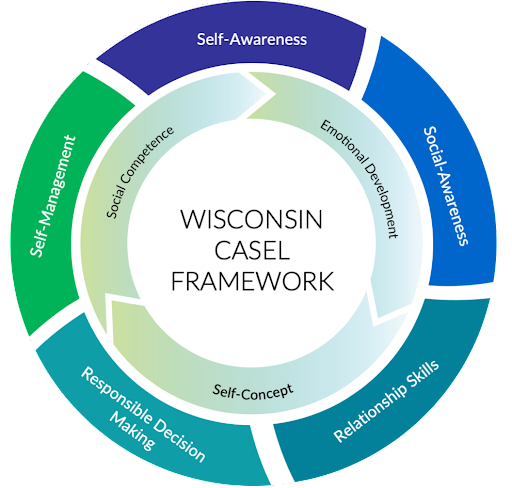
All Means All
January, 2023
A FOCUS ON RELEVANCE
Relevance in the Classroom
https://www.opencolleges.edu.au/informed/features/how-to-make-learning-relevant/
Have your students ever asked you, “When am I ever going to need this in the real world?” If so, they are searching for the relevance in our instruction. Saga Briggs is a blog author from InformED. She stated, “Relevant, meaningful activities that both engage students emotionally and connect with what they already know are what help build neural connections and long-term memory storage.” (Briggs, 2014) Simply put, relevant activities result in meaningful learning at high levels. NPSD Collective Commitments promise that we will facilitate real-world, hands-on and authentic learning opportunities to increase student engagement. You might be thinking that is easier said than done. Well, Briggs suggests in order to build relevance, we need to engage students emotionally or connect learning to previous learning. We can do this by:
Discussing how theory can be applied in practice
Making a link to what is happening locally
Relating subject matter to everyday applications
Discussing and finding applications in current events
Researching local history for your social studies lessons provides relevance to students. What would it look like if part of a lesson was connected to the Vintage World Championship Snowmobile Races or Wisconsin Fur Traders? As we look at the weather report, are we connecting what is happening to our science lessons? At Northland Pines, we learn about our local community with activities such as making ornaments for our local veterans and writing community thank you cards to various professions in the Northwoods. Students investigate the chemistry of snow and the importance of water quality in our local lakes and rivers. Farm to School provides opportunities to teach physical and chemical changes through making bread. Students go out into the community for Earth Day Clean Up. In theory, relevance might seem like a difficult task to embed in our lessons. In reality, it is already happening every day.
Can we get better? Absolutely! The challenge: Are you making connections of relevancy for our students at Pines? If not, start with one lesson a week and watch the benefits grow. Student efficacy builds with relevance. “Simply put, when a teacher provides relevance for a student, the teacher conveys his or her intentions to the student by tapping into that student’s cognitive need to make sense of the world.” (Briggs, 2014) For more tips on how to build relevance in the classroom, read “How To Make Learning Relevant To Your Students (And Why It’s Crucial To Their Success)”.
Relevance in Educational Planning
Academic Career Planning (ACP)
Academic Career Planning (ACP) is a student-driven, adult-supported process in which students create and cultivate unique and information-based visions for post-secondary success. In the sixth grade, students begin to explore their strengths and interests, explore careers and develop their career management and planning skills. At Northland Pines, students use an app called Xello. Xello features various career development lessons and a series of surveys, inventories, and other tools to help students find out more about themselves, document their goals, interests, and activities, and give them more information about post-secondary education and career options.
Students continue engaging in the ACP process throughout their middle and high school careers, with capstone projects in 8th & 12th grades. The capstone project is now a graduation requirement. This product allows students to share their ACP portfolio and post-high school plans with their family members, a panel of educators, and community members. The 2023 Pines Senior Capston Projects are scheduled for Tuesday, March 14th from 4:00-6:00 pm.
Adam Matyska, the NPSD 7th and 8th grade ACP Coordinator states, "The overall goal of ACP is to help students make connections between their strengths and interests and careers that might be a good fit for them. By doing the ACP activities we feel that students are better-equipped to make more-informed choices about what to do after high school and help them to reach their goals and dreams".
Post Secondary Transition Plans (PTP)
To best prepare students for college and career, the Academic Career Planning (ACP) is a requirement of educational services for all students in grades 6-12. In addition to the ACP, the federal government requires all students with an Individualized Education Plan (IEP), ages 14 and up, to have a Post Secondary Transition Plan. The PTP is a part of the IEP which focuses on transition. The PTP and ACP complement the transition process when used to write measurable goals with the student.
The IEP team, including the student, develops the PTP and includes it within the IEP paperwork. There are eight components to the PTP. They include:
- Student Invite
- Age-Appropriate Transition Assessment
- Measurable Postsecondary Goals
- Annual Goals
- Transition Services/Pre-Employment Transition Services
- Outside Agencies
- Course of Study
- Age of Majority
As students become increasingly involved in their IEP meetings, they begin to take ownership of their education and transition plans. The PTP process supports students in gaining the knowledge they need to make crucial decisions about their future. It helps them build confidence to recognize their preferences, interests, needs, and strengths. It allows students to voice their options and goals and solve problems based on plans for their future. Lastly, it increases the relevance of their education,





